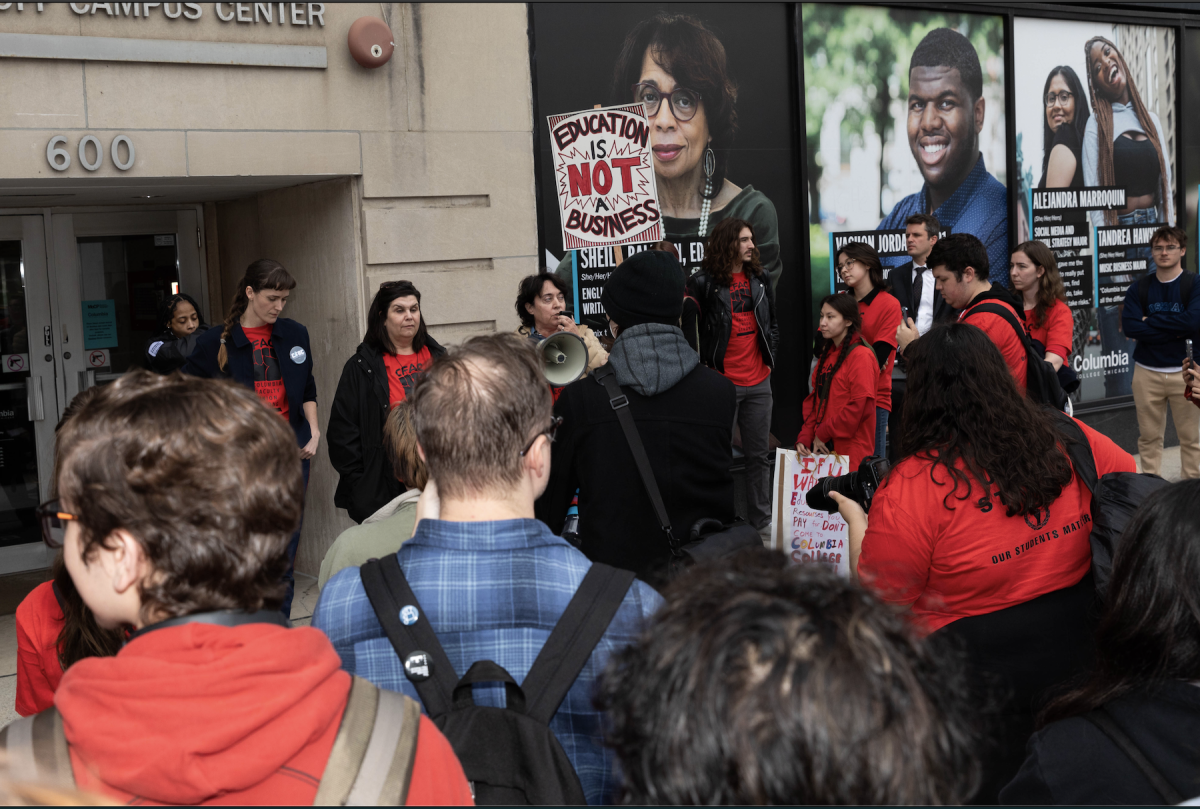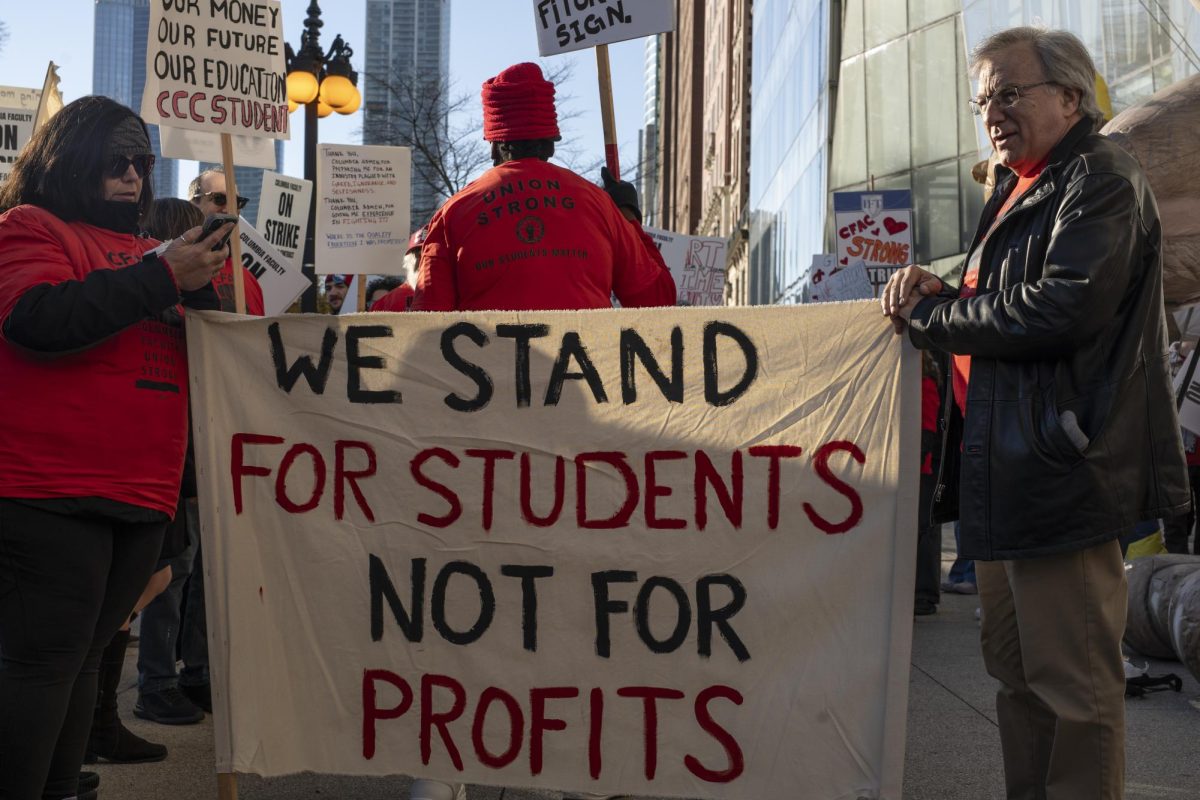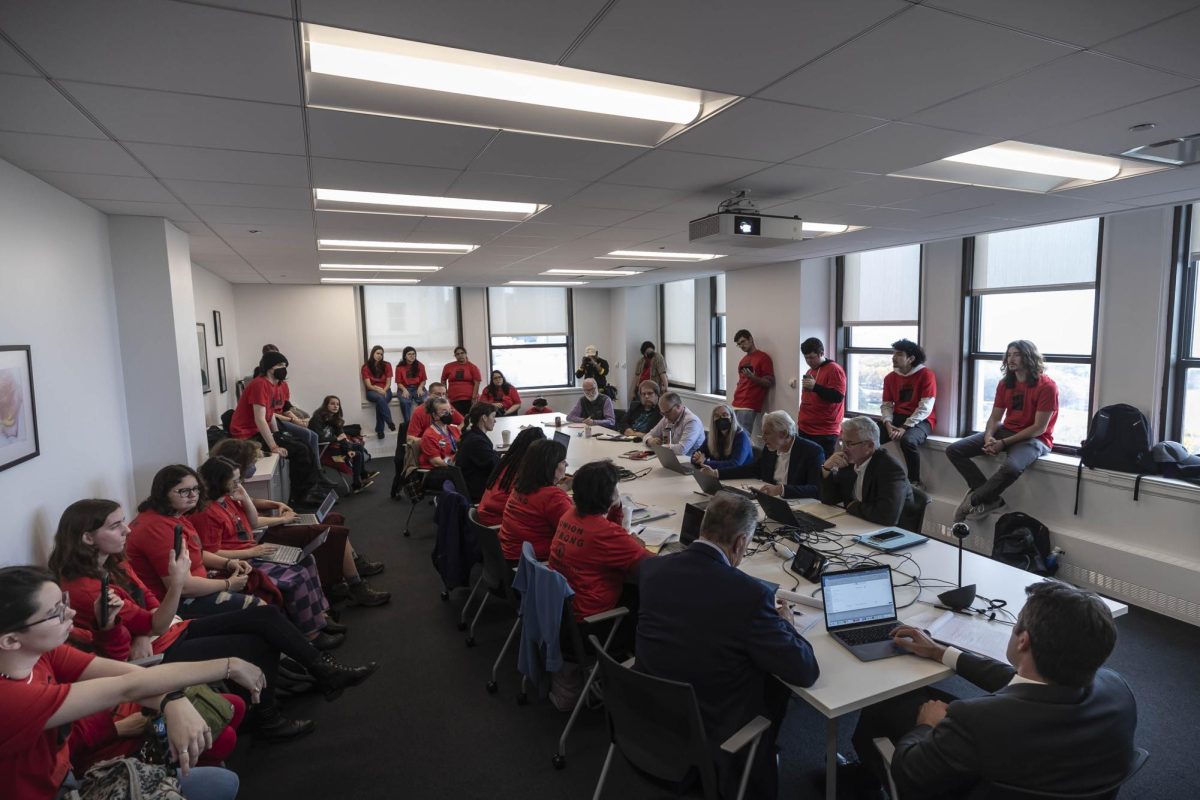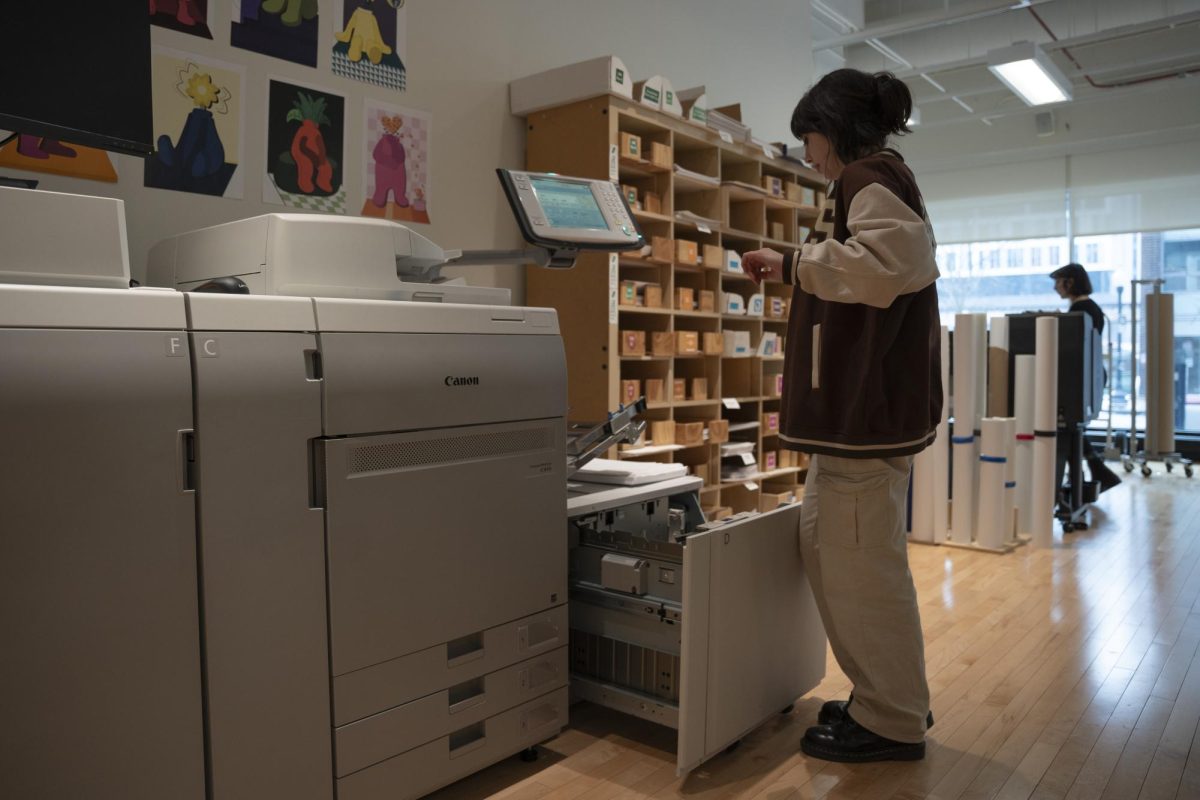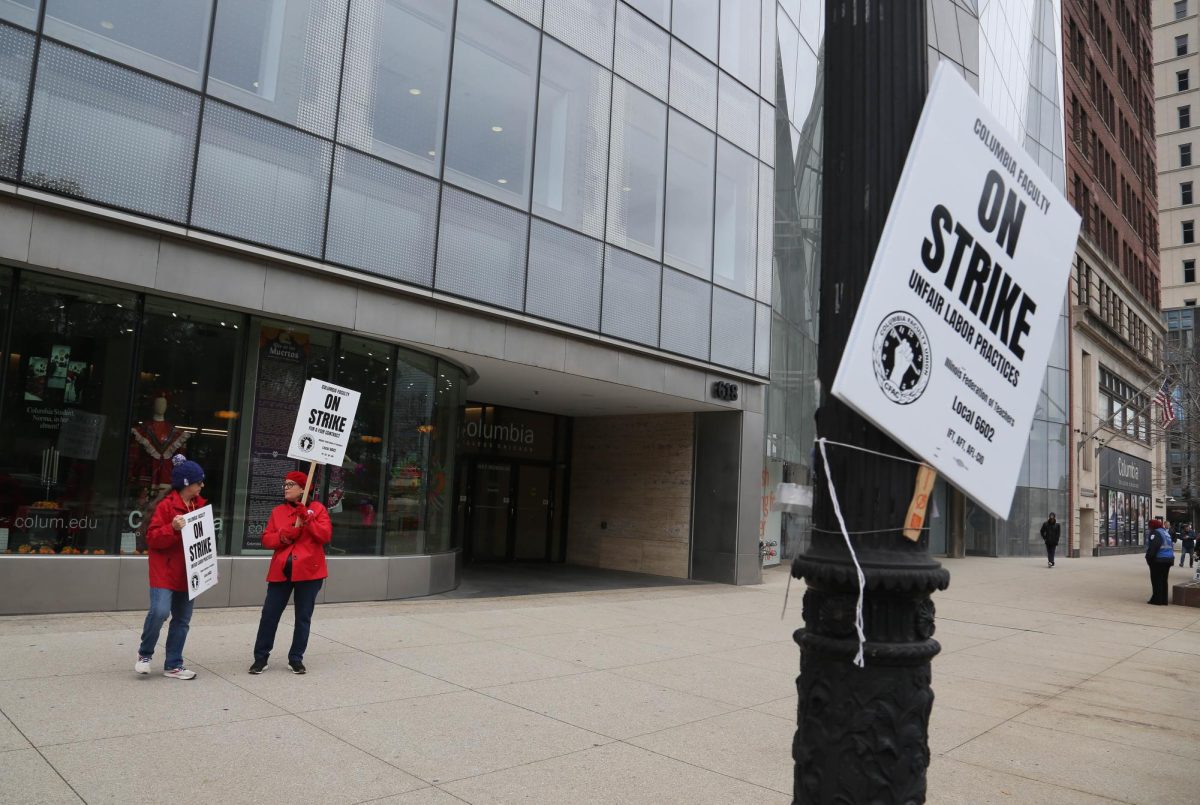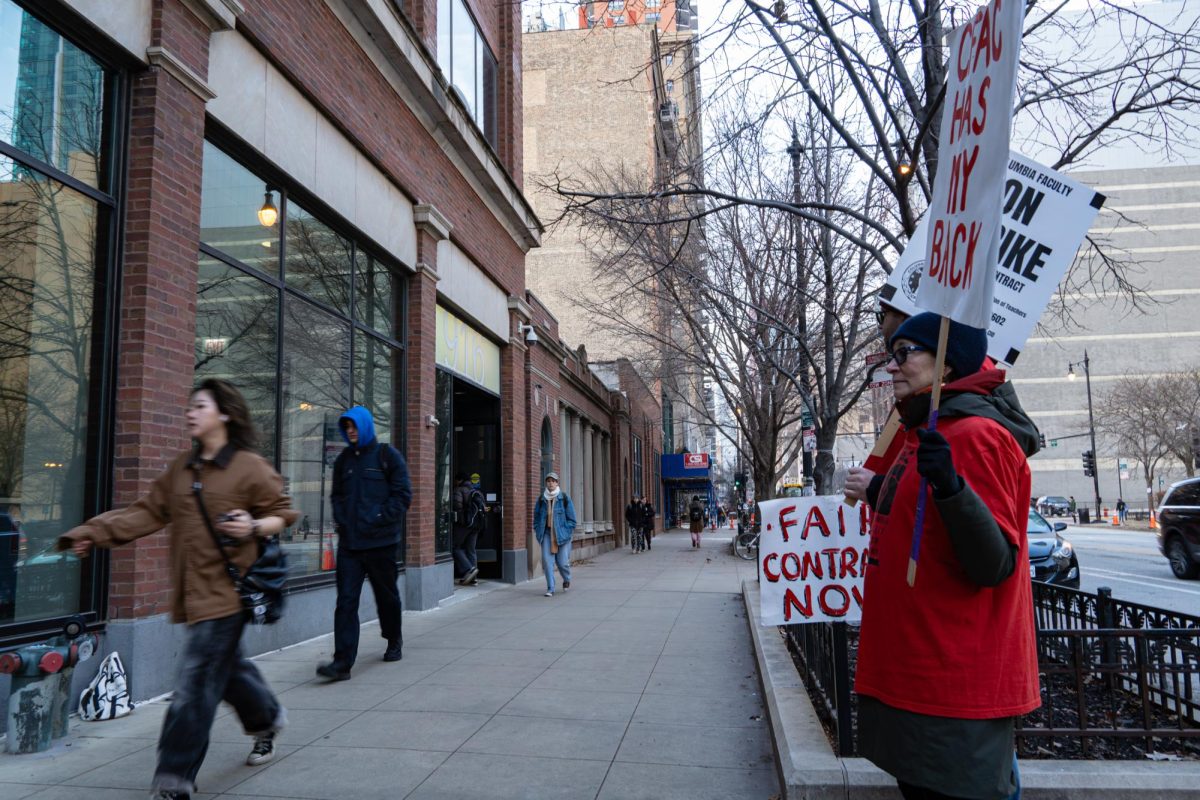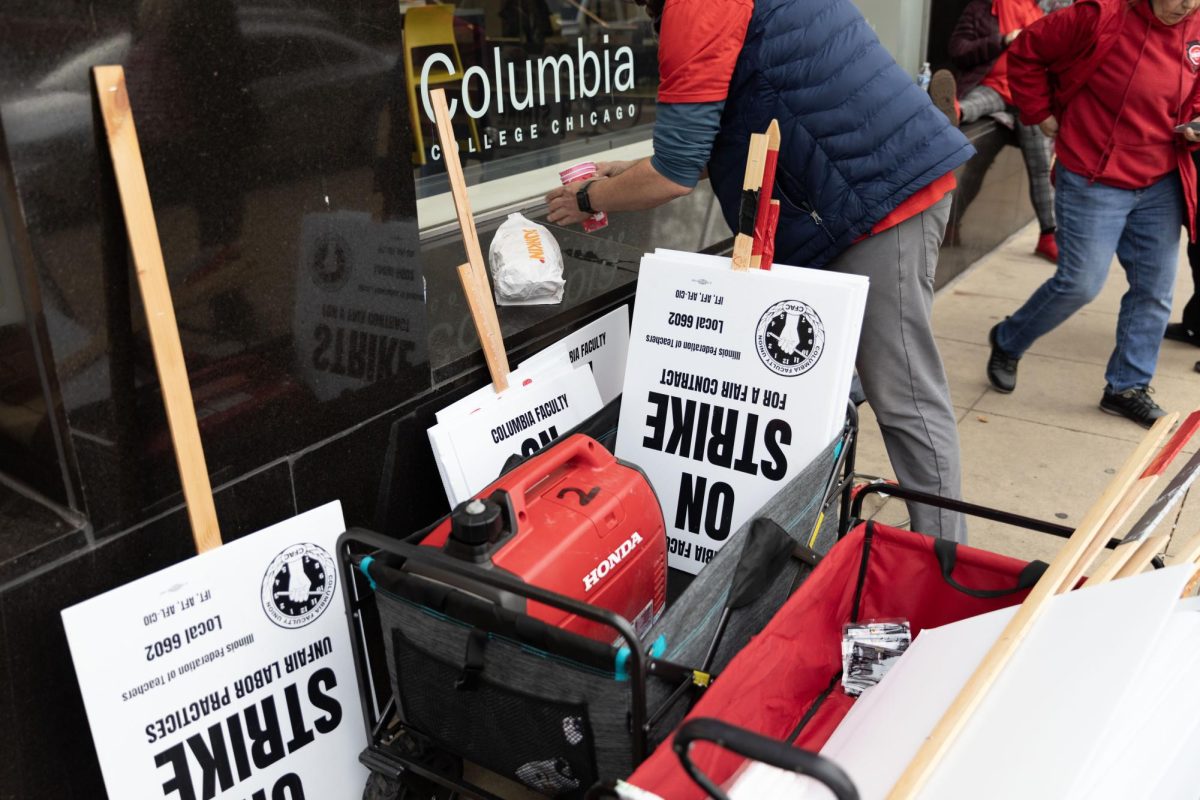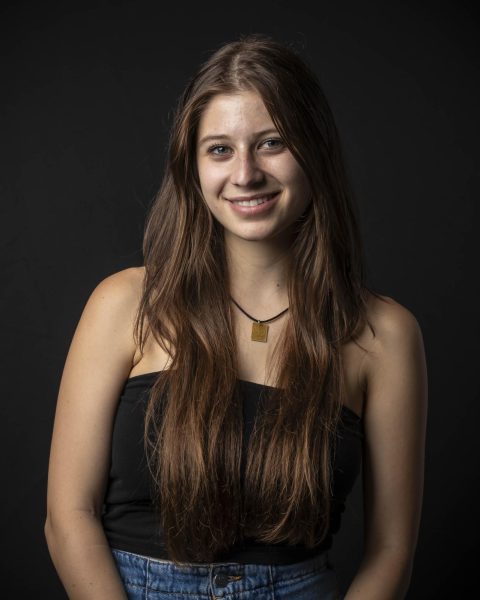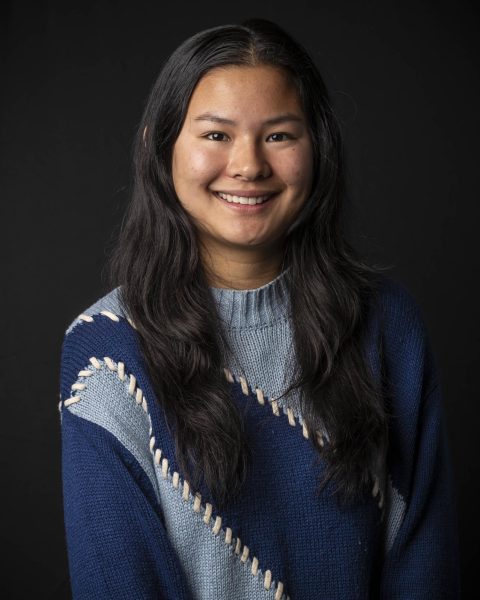The part-time faculty union is telling all part-time instructors that they must join a strike that starts Monday, Oct. 30 – regardless if they are full voting members of the union – or they will be subject to discipline, according to an email obtained by the Chronicle.
“Holding classes on Zoom is crossing the picket line. Members who cross the picket line, who refuse to honor the strike, WILL be subject to Union discipline,” union representatives said to part-time faculty in an email. “We must honor the union process, and the overwhelming vote of support from our members.”
That discipline could include fines, wage garnishment and court costs if someone refuses to pay, according to the email.
That message is different from one that is in the union’s handbook. “If CFAC must call a strike or initiate other actions of protest, we hope you’ll join us on the picket line to show your support.”
Rob Hart, a part-time instructor in the Communication Department, said the email was threatening.
“Usually when someone is threatening you and asking you to trust them and that they have your best interests at heart,” said Hart, a Columbia photography alum. “Neither one are true. That email says we have your best interest at heart, but we will also take you to court if you don’t blindly support us.”
The Columbia Faculty Union, which is currently in negotiation with the college after its contract expired at the end of August, called for a strike on Oct. 26. The union said 81% percent of eligible voting members cast a ballot, with 88% of voters approving the strike authorization.
According to an email sent out by CFAC leadership on Friday, Oct. 27, all members of the bargaining unit “must strike.”
“Regardless of your status, you are a member of the union, are bound by the results of the strike authorization vote and must strike,” the email said.
Out of the 581 part-time faculty, only members are eligible to vote. The bargaining unit has two types of members. As a condition to teach part-time at the college, all instructors pay dues. Fee-payers pay 2.4% of their salary to the union. A member pays 2.5%, according to the union handbook.
Fee-payers cannot attend union meetings or vote on contract issues or contract authorizations.
Anyone who refuses to pay cannot work at Columbia and is put on a “do not hire list,” the handbook stated.
However, regardless of status, both groups are covered and receive benefits that are part of the collective bargaining unit, including a higher pay rate that the union negotiated. In 2019, the rate for a new instructor was $2,600 per three-credit course. In spring 2023, the rate was raised to $4,817.
A part-time faculty member at the college who asked that their name not be used for fear of retaliation, said they will go on strike with the union on Monday and not cross the picket line.
“Threatening discipline does not encourage free choice,” the part-time faculty member said, calling some of the union’s language in the emails “scare tactics.”
The part-time faculty member said they are concerned about the disruption to student learning and the economic impact faculty could face if, or when, they do strike.
When faculty strike, they are not paid, according to the union. Instructors who are worried about lost pay can contact the union for information about interest-free strike loans.
CFAC also has launched a GoFundMe – dubbed Columbia College Faculty Union Strike Fund – but as of Friday, Oct. 27, the GoFundMe does not detail where the money will specifically be going or used for.
“A strike can be a powerful tool. I wish the union had stayed at the table to negotiate rather than this disruption for the students,” the part-time faculty member said. “One of the joys of my life is teaching at Columbia because the student body is incredible. It’s heartbreaking.”
Len Strazewski, former interim associate provost who was part of the college’s bargaining team, said he remembered the union also threatening disciplinary action against part-time instructors when the union went on strike in 2017 but discipline “almost never happens.”
Strazewski, a retired associate journalism professor and former interim department chair, said he did not remember any disciplinary actions from 2017.
“I think it is common for a union to say that they expect participation and if you don’t participate, you can be subject to discipline within the union structure,” Strazewski said. “I think it is common, I just don’t think it happens very often.”
Hart, who is a fee-payer and not a full member, said when it comes to the strike between the union and the administration, “every option seems wrong.”
“If students miss out on class [because of the strike] it will hurt them; if students are in bigger class sizes, it will hurt them,” Hart said. “It is a lose-lose situation.”
Hart teaches one class per semester and is paid $253 per week. He pays his mandatory union dues but is not able to vote under his union membership.
“I am so committed to the students and I wish they could find a way to work this out at the table,” Hart said. “We are all stuck in a situation we didn’t make.”
On Friday, Oct. 27, an Instagram account shared by the union and an unspecified student coalition, incorrectly stated that all classes taught by part-time instructors were canceled during the strike.
The college has said some classes taught by part-time instructors may be held and encouraged students to check Canvas. Lambrini Lukidis, associate vice president of Strategic Communications and External Relations, told the Chronicle that students and faculty will not be locked out of Canvas.
Some part-time instructors told their students they plan to hold class next week. If an instructor holds class and a student misses, they will be counted absent, according to the college. Classes taught by full-time instructors are not impacted by the strike.
When the union last went on strike for two days in 2017, not all part-time instructors participated.
The union also said any full-time faculty member who teaches for a part-time instructor is crossing the picket line. It called on students to ask their full-time instructors about whether they support the strike or not.
Madhurima Chakraborty, president of Faculty Senate, said she has been asked by CFAC leadership to show support of the strike but has not had a direct conversation with them about their demands or about what the anticipated effects are of these demands on full-time faculty workload.
“I want to be clear: I do not believe that the faculty senate occupies or should occupy a position of passive neutrality at this moment,” Chakraborty said in an email to full-time faculty. “Any bargaining agreement between the college and CFAC has potentially profound consequences for full-time faculty, for our workload and for our compensation. The Faculty Senate may not have an official bargaining position at the table, but we will continue our practice of intervening, debating and otherwise engaging with these consequences on behalf of full-time faculty.”
Full-time faculty at the college are not part of a bargaining unit.
Meanwhile, the executive board of the United Staff of Columbia College, which represents academic advisors, academic managers and other staff, told its members in an email that under the law, staff cannot be asked to cover classes for part-time instructors who are on strike.
“If you are asked to do so, you can refuse,” the email stated. “If you were to accept, you would be actively undermining CFAC’s potential strike, making it harder for striking workers to win.”
The staff union encouraged members to join part-time instructors on the picket lines and participate in other actions they have planned outside of our work hours, donate to a strike fund if they establish one and issue statements of solidarity.”
As it has in the past, the union has been galvanizing students to join with it for the strike. Last weekend, Columbia Faculty Union President Diana Vallera, a part-time photography instructor, rallied hundreds of students to confront Columbia President and CEO Kwang-Wu Kim during Family Weekend.
Vallera did not respond to a voicemail message seeking comment.
The union has filed an unfair labor practice complaint over measures the college is taking to close a $20 million deficit, including increasing class sizes and cutting some sections. Both would mean fewer opportunities for part-time faculty to teach.
Strazewski said many demands the union is making are similar to the ones in 2017. He said most unions end up settling for increased compensation.


